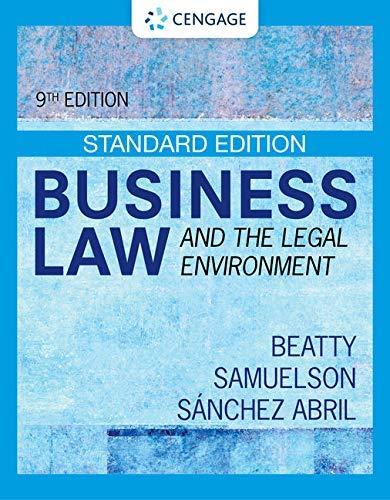Question
This assessment addresses the following course objective(s): CO3 - Solve business problems with appropriate quantitative decision-making models Research Question Hypothesis Study Design/Sample Statistical Test complete
This assessment addresses the following course objective(s):
- CO3 - Solve business problems with appropriate quantitative decision-making models
- Research Question
- Hypothesis
- Study Design/Sample
- Statistical Test complete
- Analysis
- Data
- Reference Page
For this unit's assignment, you will be performing variable analysis using a t-test. You are required to select type of t-test, (paired one-sample, two-sample). You will next find available data online, do not collect any data of your own. Some examples of available data online are prices for items, the price for apartments, or use the spreadsheet provided for analysis.
A paired t-test can be used when you are comparing paired items.
For example:
- A test taken by the same participants, in two different conditions
- Blood pressure taken from the same participants at two different times
- Price comparison for two stores, of matching items.
A one-sample t-test can be used to example if the mean of a population is different from a hypothesized value. Comparing the mean of your sample to the known mean.
For example:
- Comparing the mean blood pressure for males 55-65 years old who work out at least 5 hours per week to the population mean blood pressure for males 55-65
A two-sample t-test is used to compare two population means are equal or different. It is a comparison of two means.
For example:
- The mean price for gas in NY and the mean price for gas in FL
- The mean decreases in blood sugar for two different blood sugar medications.
Criteria for using a t-test
- If the sample size is less than 15, a t-test is permissible if the sample is roughly symmetric, single peak, and has no outliers.
- If the sample size is at least 15, a t-test can be used to omit outliers or strong skewness.
- With a larger sample, the t-test can be used even if skewed distribution if the sample is greater than 30, but less than 10% of the population
- Research Question
- Hypothesis
- Study Design/Sample
- Statistical Test complete
- Analysis
- Data
- Reference Page
Step by Step Solution
There are 3 Steps involved in it
Step: 1

Get Instant Access to Expert-Tailored Solutions
See step-by-step solutions with expert insights and AI powered tools for academic success
Step: 2

Step: 3

Ace Your Homework with AI
Get the answers you need in no time with our AI-driven, step-by-step assistance
Get Started


